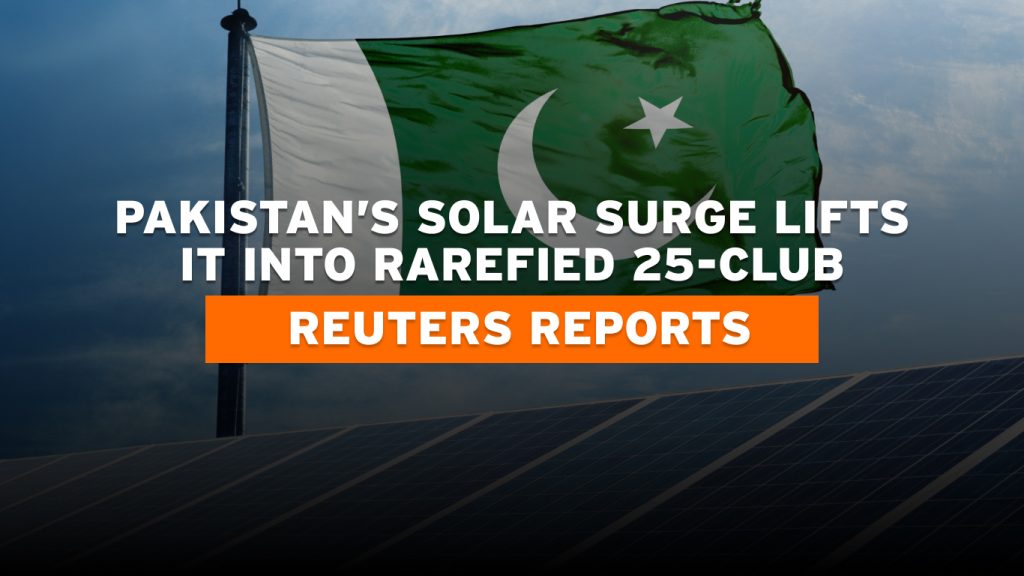Pakistan has made a significant leap in its renewable energy journey, joining an exclusive group of countries generating at least 25% of their electricity from solar power, according to a report by Reuters. This milestone highlights the country’s rapid adoption of solar energy as it seeks to address chronic power shortages and transition toward cleaner energy sources.
Pakistan’s solar capacity has surged in recent years, driven by government incentives, declining solar technology costs, and international support. The nation now produces more than a quarter of its electricity from solar power, a remarkable achievement for a developing country facing numerous economic and infrastructural challenges.
Reuters details that this progress places Pakistan alongside a select group of countries globally, sometimes referred to as the “25-Club,” which includes nations with advanced solar deployment and strong commitments to clean energy targets. This group represents global leaders in solar integration and renewable energy development.
“This achievement is a testament to Pakistan’s dedication to combating energy scarcity and climate change simultaneously,” said energy analyst Hassan Shah in the Reuters report. “The government’s policies and investments in solar infrastructure have played a critical role in this transformation.”
Pakistan’s solar boom comes amid ongoing power crises marked by frequent blackouts and reliance on expensive imported fossil fuels. The shift toward solar energy not only promises more reliable and affordable electricity but also helps reduce the country’s carbon footprint.
Reuters notes that solar installations have expanded from large-scale solar farms to include distributed rooftop systems, boosting energy access in urban and rural areas alike. Additionally, the integration of solar with energy storage technologies has improved grid stability and allowed for better management of intermittent renewable sources.
According to the report, the government’s recent policies, including attractive tariffs, streamlined permitting processes, and public-private partnerships, have accelerated solar project development. International financial institutions and development agencies have also provided vital funding and technical assistance.
“The support from global partners has been instrumental in enabling Pakistan to scale up its solar capacity quickly and effectively,” said Shazia Malik, director of the Pakistan Renewable Energy Council, as quoted by Reuters.
Despite this progress, Pakistan faces ongoing challenges in maintaining grid infrastructure, ensuring regulatory consistency, and expanding access to financing for smaller solar projects. However, industry experts remain optimistic that continued reforms and investment will sustain the momentum.
Reuters highlights that Pakistan’s success story offers lessons for other developing countries seeking to harness solar power amid economic and energy constraints. It demonstrates that with the right mix of policy, technology, and international cooperation, substantial renewable energy gains are possible even in complex environments.
“The inclusion in the 25-Club is more than just a symbolic achievement; it’s a clear signal that Pakistan is emerging as a regional leader in solar energy,” said Shah. “This positions the country well for future growth and energy security.”
As Pakistan continues to expand its solar infrastructure, the country is also exploring complementary clean technologies such as wind and hydropower to diversify its energy mix and further reduce emissions.
Reuters’ report underscores that Pakistan’s solar surge is a critical step in meeting its climate commitments under the Paris Agreement and improving the quality of life for millions through cleaner, more reliable power.
With the global transition toward renewable energy accelerating, Pakistan’s entry into the 25-Club signals its rising role on the international clean energy stage and offers hope for other nations striving to balance development with sustainability.




